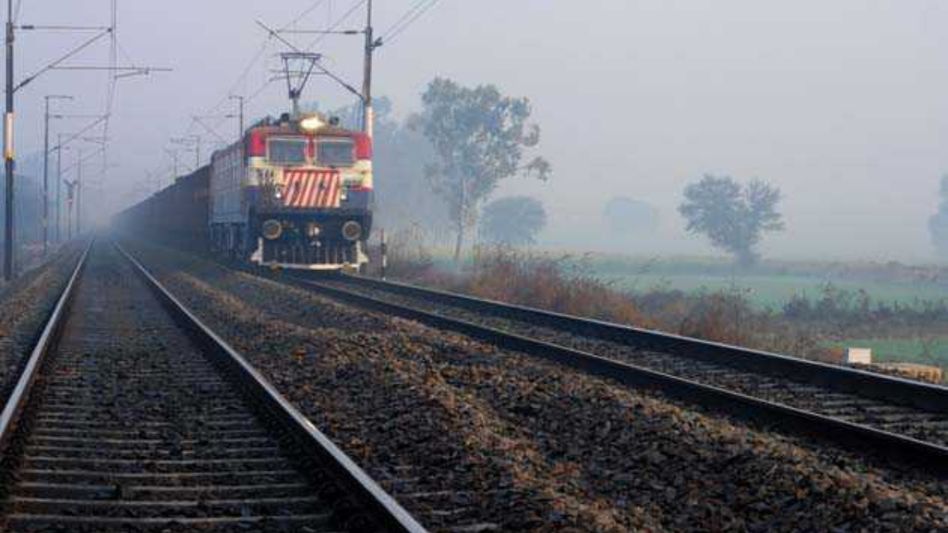Sikkim to get first train service by 2024
With more than half of the Sivok-Rangpo railway line project completed, Sikkim is anticipated to join the national network by 2024.
 Sikkim to get first train service by 2024
Sikkim to get first train service by 2024With more than half of the Sivok-Rangpo railway line project completed, Sikkim is anticipated to join the national network by 2024, while the country would get "infrastructure of strategic importance" in the Himalayan state that borders China.
The under-construction all-weather 45-kilometre train route from Siliguri in West Bengal to Rangpo in Sikkim will have 14 tunnels and 22 bridges as it passes over mountains, ravines and the Teesta River.
“Work is underway on a war footing but being done with extreme care as the entire project falls in seismic four and five zones. In addition, there is always the threat of landslides and flash floods,” Project Director Mohinder Singh from IRCON International, a central PSU under the Ministry of Railways, said. Safety protocols are in place and being followed, the official of the Indian Railway Construction (IRCON) International Limited, assured.
He further stated that there are plans to expand the lineup to Gangtok at a later date.
Also Read: Sikkim's 47km long Jawahar Lal Nehru Marg road dons new look
He informed reporters that there have been significant achievements in tunnel construction and bridge laying and that the two-kilometre tunnel (T-14) before the yet-to-be-built Rangpo station has been completed, while six others are nearing completion (line work).
"This is an infrastructure of strategic as well as economic importance," the director said when questioned about the project's significance given Sikkim's proximity to China.
"Overall, more than 50 per cent of the work has been completed,” he said.
Echoing his views on the significance of the rail line project – 41.45 km of which is in West Bengal and 3.51 km in Sikkim, Darjeeling MP Raju Bisht said, “The region (Sikkim and North Bengal) share borders with four countries -- Bangladesh, Nepal, Bhutan and China – and a part of it is called the ‘chicken’s neck’. This is a really sensitive area." "Besides improving connectivity in the region, which is known for its many tourist destinations, it will be a major boost from the security point facilitating troop movement," the MP added.
Vehicle travel from Siliguri to Rangpo takes around three hours due to high traffic and the narrowness of the road that runs beside the Teesta, but the train project will reduce it to one hour, according to authorities. "The project is a significant step towards improving rail connectivity to border states." "Once completed, the project will improve transportation of goods, particularly essential items, which is currently hampered due to landslides during inclement weather," stated the project director.
The track on the Northeast Frontier Railway's Sivok-Rangpo segment will be able to bear 25 tonnes and trains will be able to travel at a maximum speed of 110 kmph.
“We will be running both freight and passenger trains on this section,” Singh said. There will be three stations – Riyang, Teesta and Melli -- between Sivok and Rangpo. “The Teesta station will be underground, the first for the Indian Railways,” Singh said, adding that yards for freight are also being constructed on the single-line route.
According to an IRCON document, tunnels account for 86% of the 45-kilometre rail route (38.62 km), while bridges account for 2.24 km (13 major and nine minor). "This is not only a project of national and strategic importance, but it is also a technological and engineering marvel," Singh remarked.
However, the project has seen several setbacks. The project was awarded to IRCON International in May 2010 for Rs 4,084.69 crore, with a deadline of May 2015. According to the paper, the revised deadline is now December 2024, with a revised cost, including escalation, of Rs 12,474.07 crore.
The corporation blamed the setback on "delays in forest land division falling in West Bengal," "permission for conducting a survey in Mahananda Wildlife Sanctuary," a "diversion of forest land" procedure, and COVID-19.
Copyright©2025 Living Media India Limited. For reprint rights: Syndications Today









